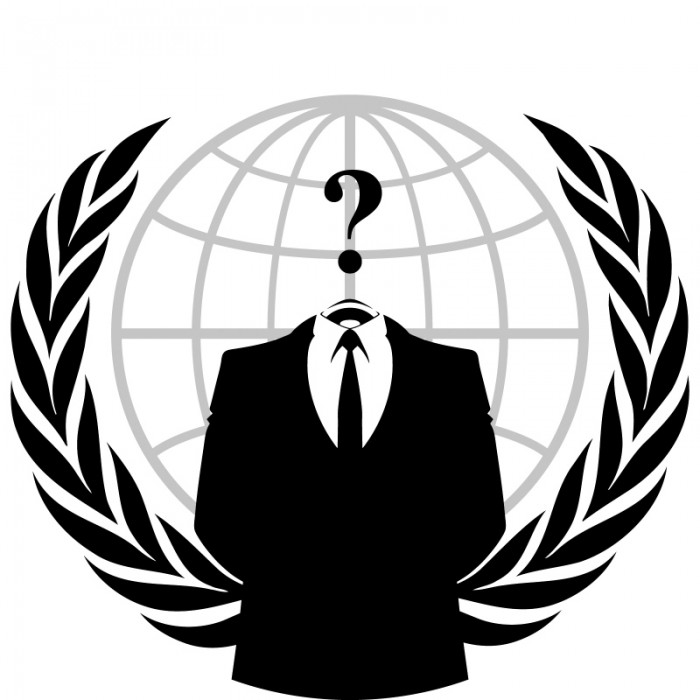“ISIS, we will hunt you, take down your sites, accounts, emails and expose you…
From now on, no safe place for you online…
You will be treated like a virus, and we are the cure…
We own the internet…”
“Hacktivist group Anonymous has reported that more than 5,500 Twitter accounts belonging to Islamic State have been taken down. It comes after the collective declared a “total war” on the militant group following the Paris attacks,” RT News reports.
They released the following video in response to the attacks on Friday night:
If you feel like you’re living in a modernistic, techy spy movie, well, you’re not the only one. Still, Anonymous’ track record in well-planned hacktivism against ISIS makes me hopeful that their actions could bring real results.
The video concludes:
“We are Anonymous.
We are legion.
We do not forgive. We do not forget.
Expect us.”
I’ll be following this story closely; my expectations are high.
~
This is crazy, cool, unprecedented and utterly modern activism at its finest. It also calls for serious thought and discussion on how our global community should and does act.
In February, cyber collective Anonymous released the above statement along with lists of ISIS-affiliated Twitter accounts, emails and (suspected) Facebook profiles. As ISIS has relied heavily on Twitter for recruitment and propaganda, the disabling of its accounts could significantly hinder these activities.
This is presumably just the beginning of a larger #OpISIS endeavor.
Hackers, hacktivists, cyber spies, vigilantes, the guy next door. Anonymous has been called—and has called itself—all of these things, but one thing is certain: It is anything but a monolithic entity. A loosely-tied global community acting virtually and sometimes physically, in groups and independently, for fun and for ideology, Anonymous follows few set rules.
A few broad guidelines do however apply: members, or “Anons,” generally support net-neutrality and oppose censorship, will not disclose their identities, and do not talk about the group.
Critics have referred to the group as “cyber terrorists,” while supporters have dubbed them “digital Robin Hoods.” Anonymous has claimed responsibility for attacks on the Church of Scientology, child pornography sites, PayPal, the Ku Klux Klan, and government agencies like the US, Israel and Tunisia, often in the name of pro-freedom, anti-censorship principles.
Though many arrests have been made, self-professed members seem to number in the thousands, with a presence so fluid and nebulous one could never hope to fully bring it down.
The question I’m asking is: Should we want to?
With no leadership, no centralized authority, and an identity and philosophy that are vague at best, Anonymous proves a fascinating experiment in virtual anarchy, political action, and collaboration.
It frequently uses this tagline, “We are Anonymous. We are Legion. We do not forgive. We do not forget. Expect us.”
It also provides a desperately needed restraint on the forces that be: governments, corporations and large-scale censorship—physical and virtual both. Vigilantes have always played their role in society and the Age of Technology certainly calls for a new kind of defenders.
“Anons” act towards political, comical or purposeless ends—alone and in ephemeral, briefly-formed collaborations.
Really, it is somewhat erroneous to refer to Anonymous as “it” or “them,” since it largely seems to be characterized as “anyone” and “everyone”: A vast and shifting, loosely-affiliated assembly of voices, identities and agendas. Theoretically, in acting according to a relentless individual morality, that community also acts in the interest of the masses.
But can a global community have such well-aligned interests and goals?
“We come from all races, countries, religions and ethnicity. United as one, divided by zero. We are Anonymous.”
What these faceless (and bodiless) people have accomplished—against ISIS and elsewhere—is astounding. They operate weapons that are arguably more powerful than any guns or missiles; that is, they deal in information. That this power resides in the hands of so many individuals who act outside of legal or social constraints is either terribly exciting or rather terrifying, depending on your stance.
These are not your mother’s terrorists, if they are indeed terrorists. And they are not your grandfather’s vigilantes, if that is, finally, the role they will fill.
This is something quite new (a decade old at most), and a considerable adversary to those who oppose its values. Who else has challenged ISIS so fearlessly—and effectively?
Personally, if someone is going to own the internet, I would rather it be Anonymous than Google, Comcast or a government body.
What about you?
For further reading:
Independent
Anonymous’ message on Pastebin.
Dazed
Wikipedia
Relephant Read:
Building Global Cybersangha
Author: Toby Israel
Editor: Renee Picard
Photo: Wikipedia Commons



Read 3 comments and reply